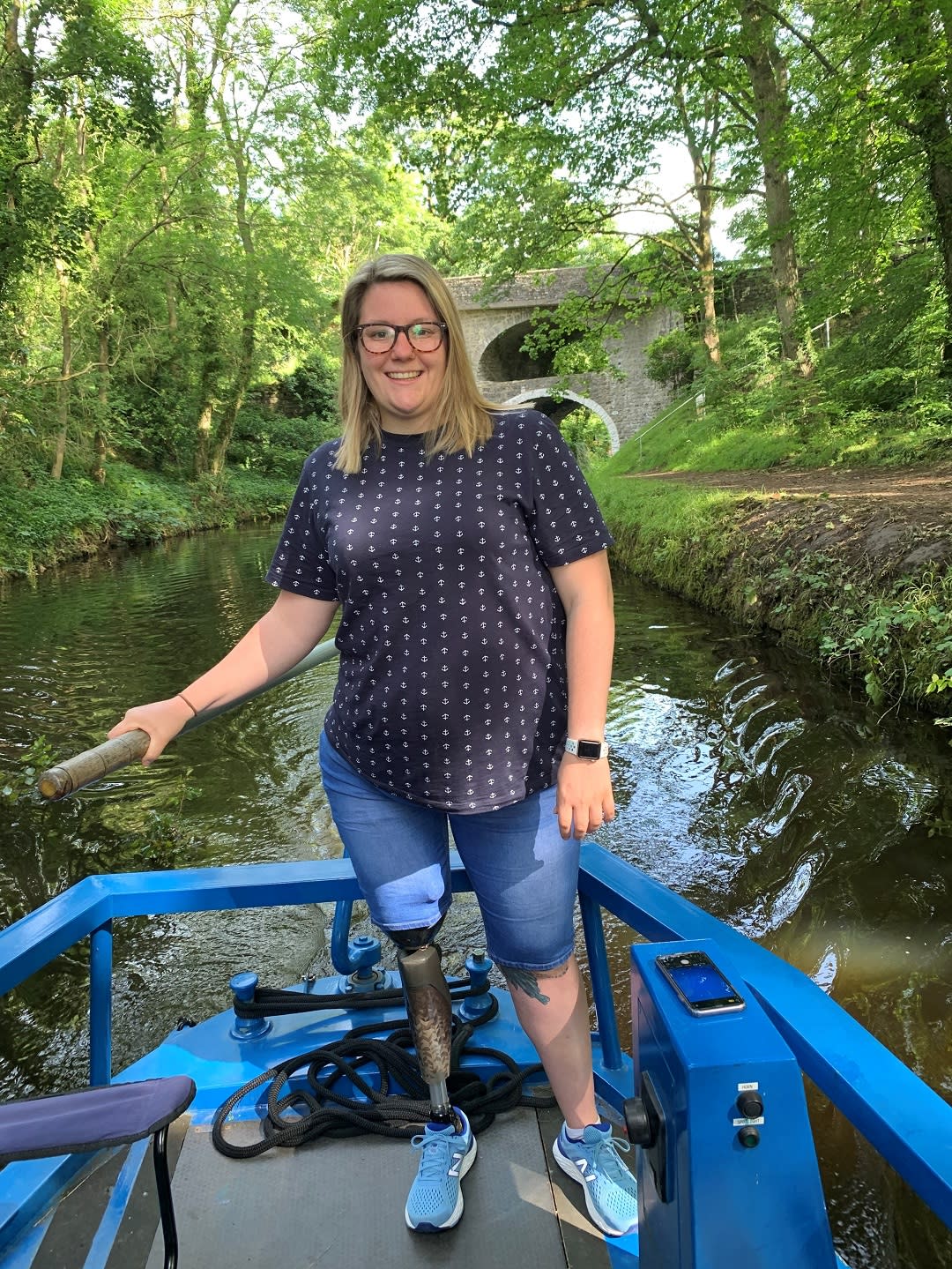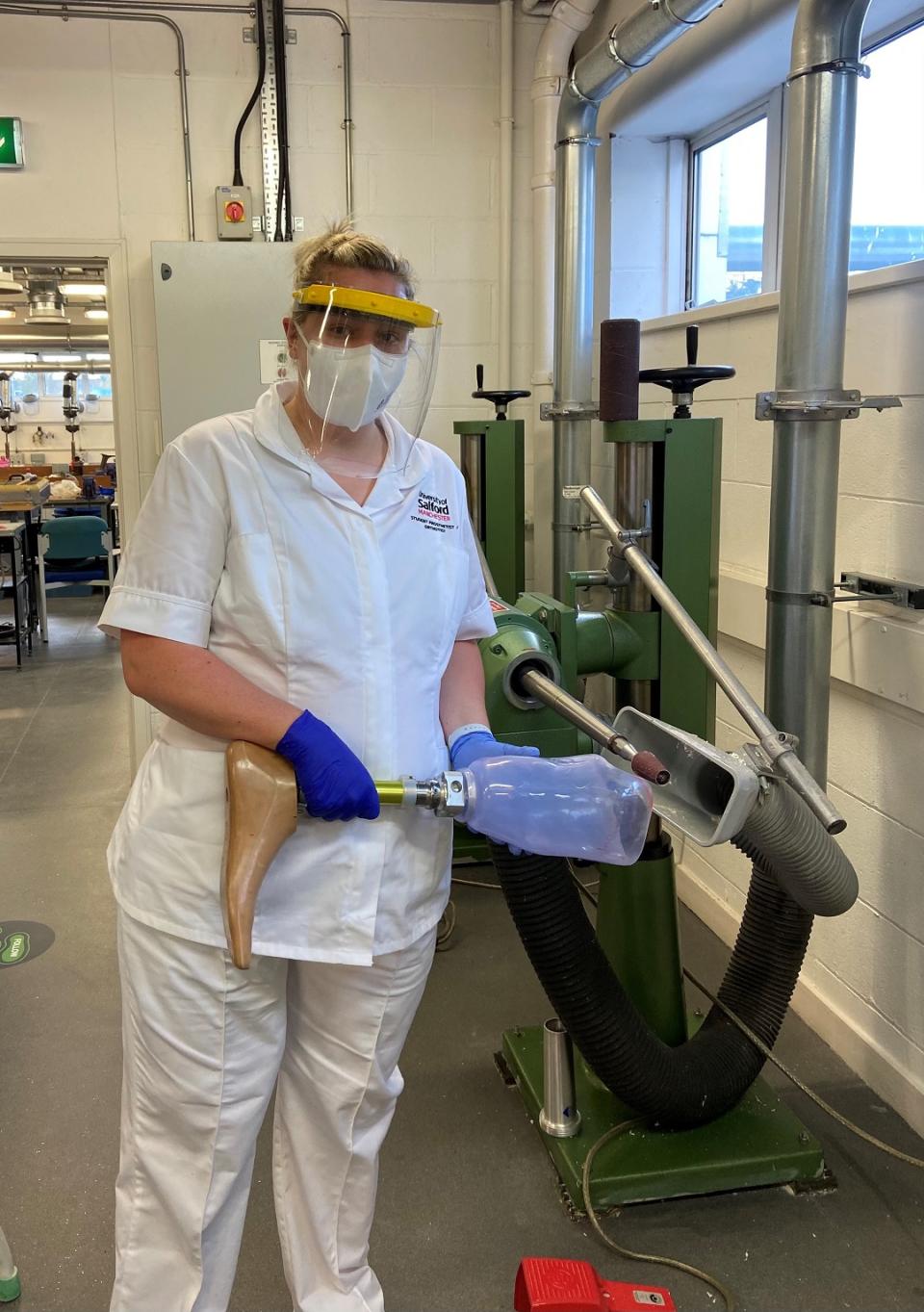Amputee, 28, reveals how losing leg after rugby accident inspired career change

A former office worker was inspired to retrain after a freak rugby accident resulted in her leg being amputated.
Gracie Matthews, 28, endured damage to her femoral artery after her right knee dislocated in 2016.
The artery – which supplies oxygenated blood to the leg – could not be repaired, leaving medics with no choice but to amputate the limb.
Determined to “make the best of it”, Matthews enrolled onto a prosthetics and orthotics undergraduate course at the University of Salford as a mature student in 2019.
Read more: Car crash left mother with antibiotic-resistant infection
Learning how to make and align prosthetic limb sockets, she hopes to one day help patients who are forced to adjust to life-changing amputations like her.

On 21 February 2016, Matthews endured a full knee dislocation that tore ligaments and muscles in her right thigh. Matthews had the amputation on 2 March 2016.
Despite the life-changing operation, and six weeks in hospital, she has always been determined to stay positive.
Watch: Meet Sarah Dransfield, a 24-year-old bone cancer survivor turned amputee model
Read more: Press officer opens up about living with severe allergies
“There are bad days, like when your leg’s rubbing or it’s around the anniversary of the accident,” said Matthews.
“I just think, ‘well, this is my life now’.
“I’m going to make the best of it, otherwise I’m going to be miserable.”

Matthews previously spent one year training to be a nurse, before working in an office. Losing her leg inspired her to get back into healthcare.
“I enjoyed learning about my prosthetic leg going to appointments, so I thought, why not?” said Matthews.
Ten years out of education, she decided to move from Milton Keynes to Manchester six months before the Salford course began.
“I got a job, joined the Manchester LBGTQ [lesbian, bisexual, gay, transgender and queer or questioning] choir and made friends that way,” said Matthews.
“It really helped me to settle in.’
As much as she enjoys the course, Matthews – who is now in her second year – initially struggled becoming a full-time student again.
“It was a hard transition back into education, but I do feel more organised this year,” she said.
Read more: Firefighter believes job triggered cancer
Like many industries, the coronavirus outbreak has affected Matthews’ course.
“We are doing more condensed practical days, so most of my days I’m sat around studying, and then you go and do a 9am until 6pm on your feet,” she said.
“I think most people with two legs would feel knackered after that, so I don’t feel so bad about being tired.”
While Matthews has adjusted well to life with a prosthetic leg, her treatment is not yet complete.
“I’m having issues with my leg now which requires surgery, so my mobility is reduced,” she said.
As is common with amputated limbs, part of Matthews’ bone has grown, causing pain. She therefore requires surgery to have part of the growth shaved off.
While waiting for the pending operation, due in 2021, Matthews is focusing on her course.
“I like to have goals to work towards, and that keeps you in the mindset of doing well and keeping positive,” she said.
Watch: Teen crushed by forklift opens up about amputation



